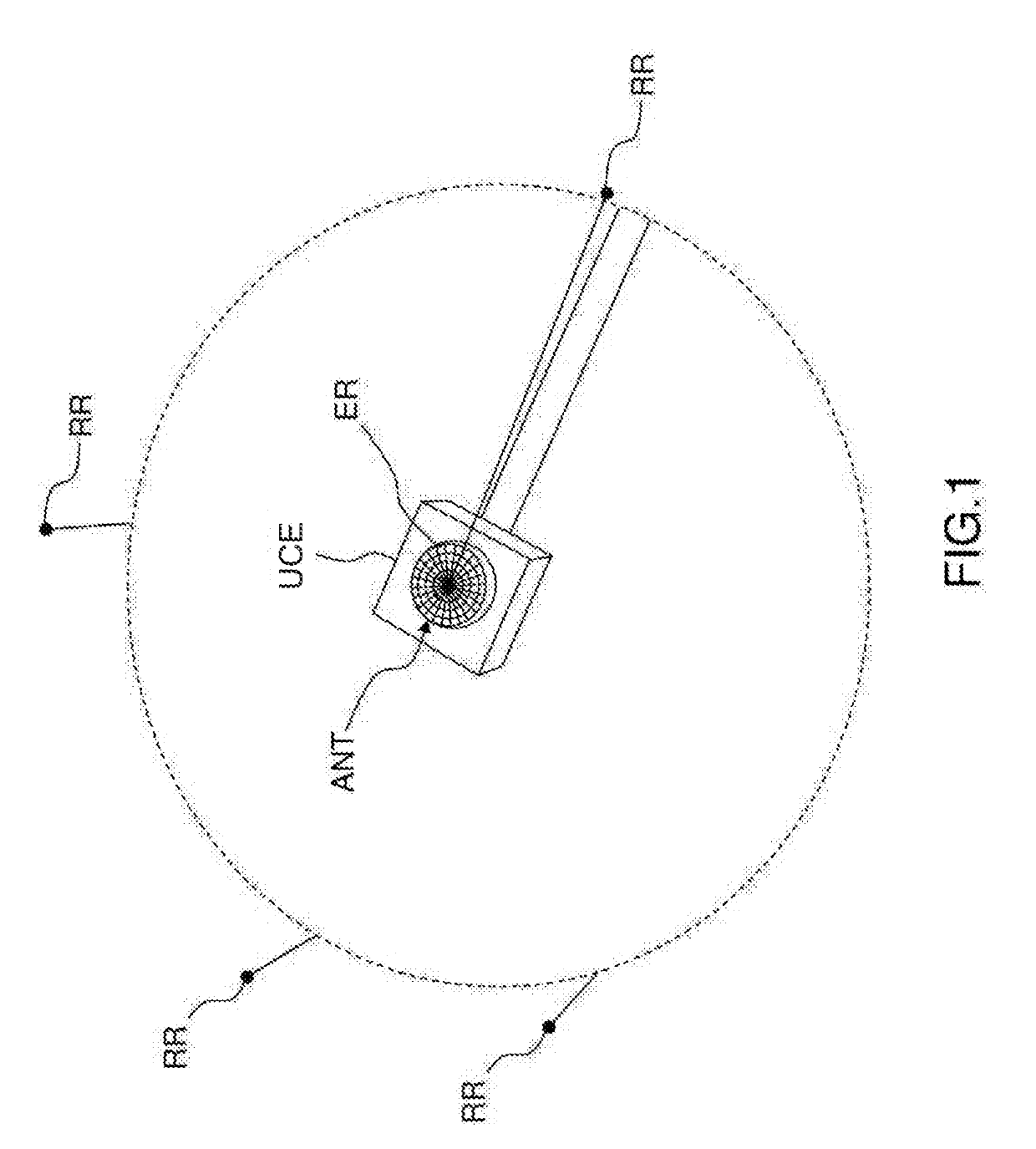Method for determining a phase bias in the signal transmitted by at least one of the radiating elements of an active antenna, and associated device
a technology of active antenna and phase bias, which is applied in the direction of transmitter monitoring, transmission monitoring, instruments, etc., can solve the problems of not really monitoring the quality of the emitted signal, the element of the antenna is defective, and the effective control of the phase and amplitude distortion of the antenna and rf, so as to improve the beamforming
- Summary
- Abstract
- Description
- Claims
- Application Information
AI Technical Summary
Benefits of technology
Problems solved by technology
Method used
Image
Examples
Embodiment Construction
[0036]For ease of reference, the term “point” (to a satellite or to a receiver) will be used to signify “beamforming by dephased combination of the signals emitted in the direction of”. Specifically, this corresponds to physically “pointing” a mobile parabolic antenna by focusing the maximum gain in this direction.
[0037]FIG. 1 shows a system for determining a phase bias in the signal transmitted by at least one of the radiating elements ER of an active antenna ANT on the ground emitting signals into space using a space-division multiple access SDMA method, intended for a set of satellites.
[0038]The system comprises at least three reference receivers RR positioned with respect to the average plane of the active antenna ANT such that their elevation angle is equal to a minimum elevation threshold starting from which the antenna has to be able to communicate with satellites, and at a distance from the antenna that is greater than ten times the maximum wavelength for communication with ...
PUM
 Login to View More
Login to View More Abstract
Description
Claims
Application Information
 Login to View More
Login to View More - R&D
- Intellectual Property
- Life Sciences
- Materials
- Tech Scout
- Unparalleled Data Quality
- Higher Quality Content
- 60% Fewer Hallucinations
Browse by: Latest US Patents, China's latest patents, Technical Efficacy Thesaurus, Application Domain, Technology Topic, Popular Technical Reports.
© 2025 PatSnap. All rights reserved.Legal|Privacy policy|Modern Slavery Act Transparency Statement|Sitemap|About US| Contact US: help@patsnap.com


